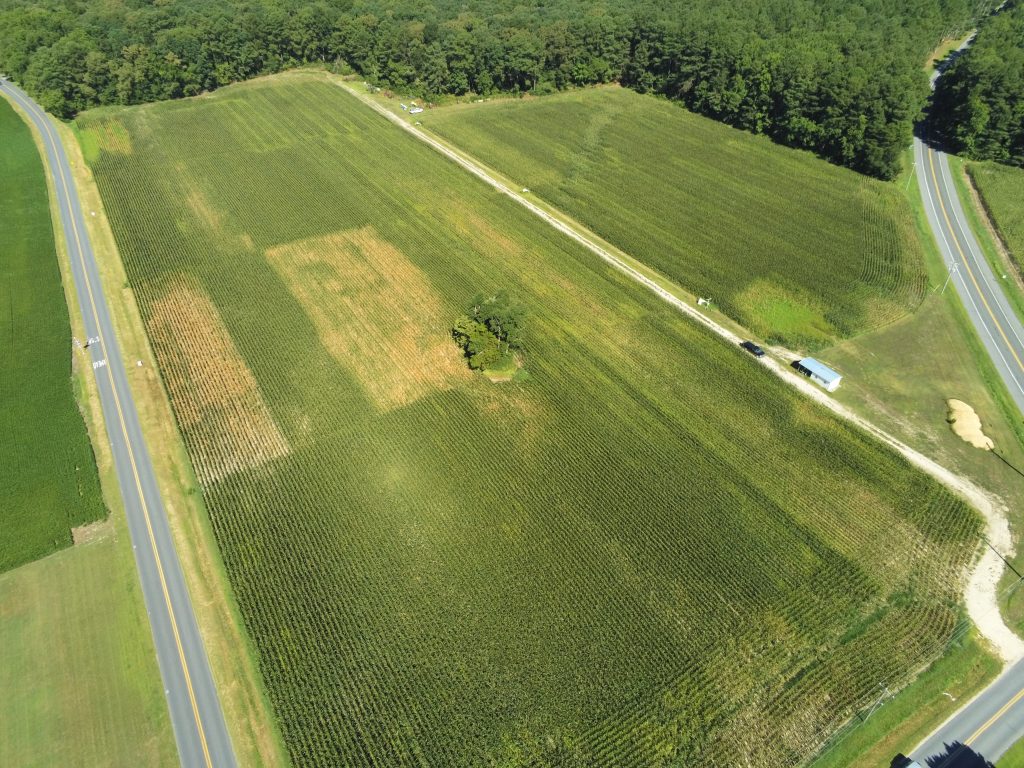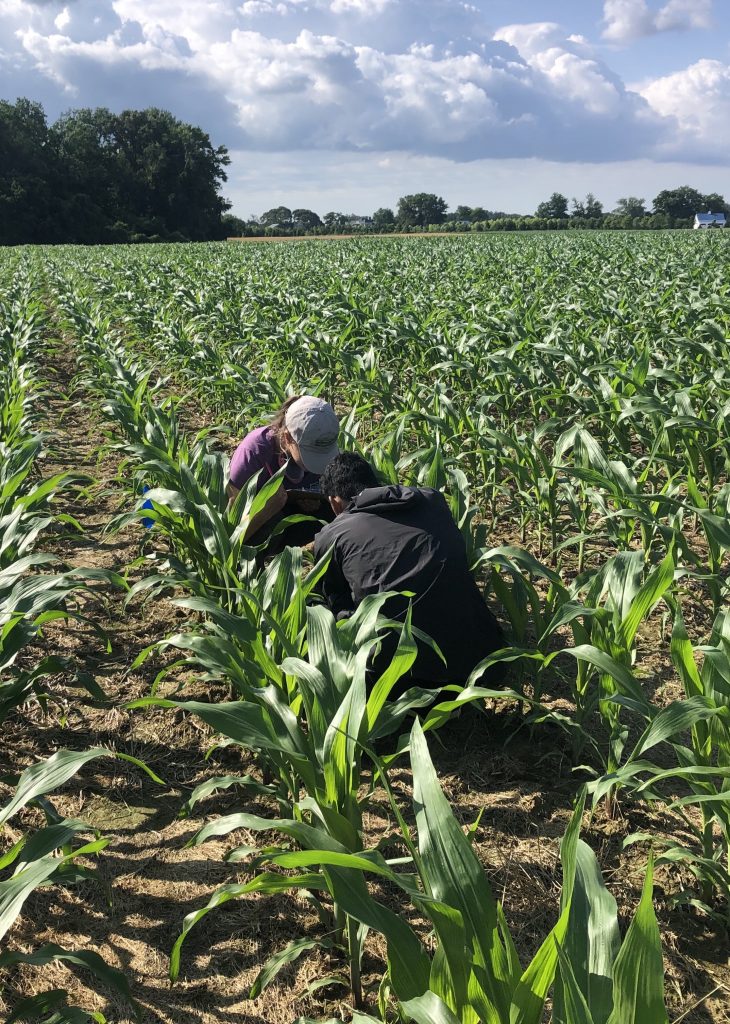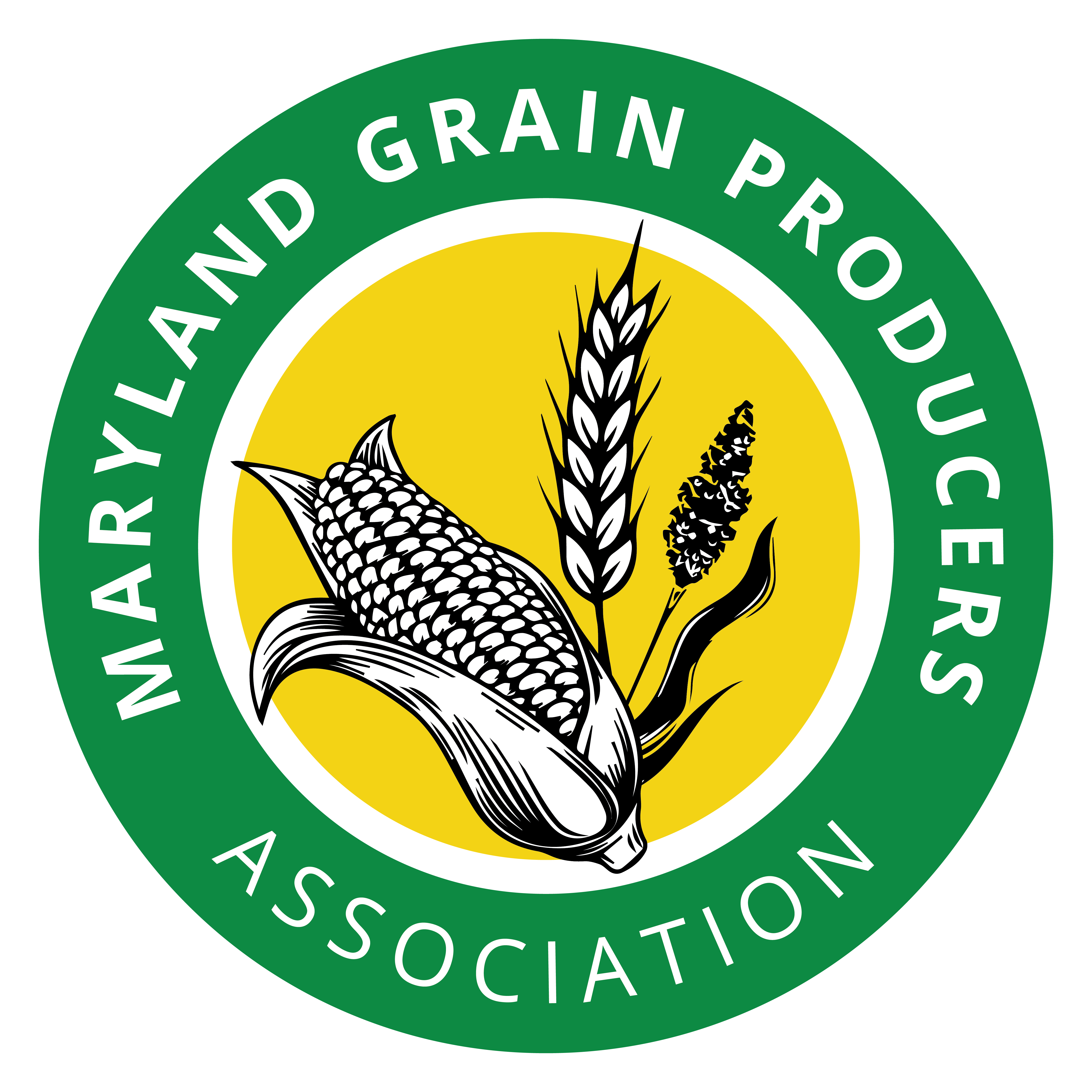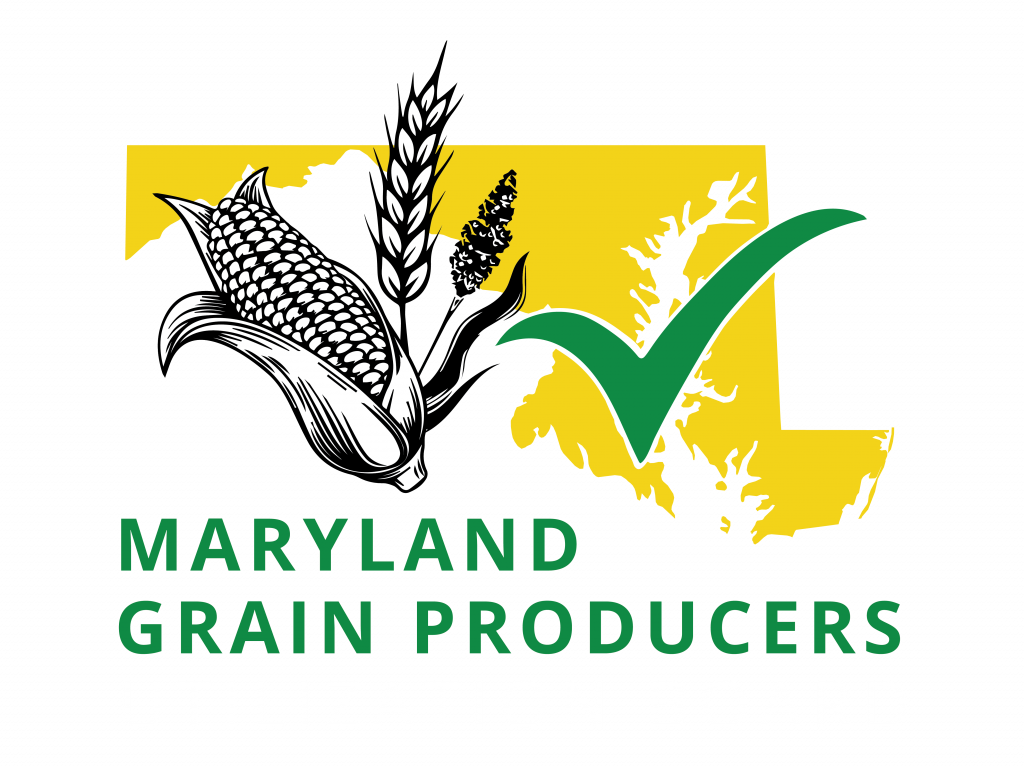In 2024, the Utilization Board Funded 17 grants at $280,532. Read about the 2023 check-off funded grants success below!
Medius.Re
Check-off dollars funded the launch and ongoing maintenance of the Medius.Re database to benefit producers across the state. This platform gives farmers the ability to analuze variety trial data for corn, wheat, and barley across time and space with their own customized criteria.
To better understand how to utilize Medius.Re check out the two support videos. For the dashboard overview, click here. For the analytics overview, click here. If you need technical assistance, you are welcome. to contact Bradley Halladay at brad@medisuag.com or by calling 717-799-9118.
Grid Sampling Soils to Improve Crop Yields

- Funded $14,719 in 2024.
- Researcher: Dr. Jarrod Miller with the University of Delaware.
- Variability in soil land landscape characteristics reduces yield response to management techniques, particularly regarding seeding rates and fertilizer additions. One method to uncover soil variability and crop response is to use precision soil sampling, including either grid or zone methods. Check-off funds helped produce 90*90 foot grid maps on the UD irrigation research farm, with initial observations uncovering management-related pH issues and field patterns in micronutrients that were not similar to each other.
- Corn nitrogen and population studies were also performed under irrigated and rainfed conditions, with irrigation boosting yields by 30 bushels in 2023. Lack of K in rainfed plots lowered yields, but also increased Mg uptake. While additional N did not increase uptake or yields in rainfed fields, it did increase soil acidity, and potentially released additional Mn, Cu, and Al into the soil solution and the corn tissue.
Determine the Best Systems Approach to Managing FHB
- Funded $25,000 in 2024.
- Researcher: Dr. Nidhi Rawat with the University of Maryland.
- Small grain flowering season in Maryland is often humid and warm, making it critical to manage diseases in timely manner. Through this research, the team conducts an artificially-inoculated misted nursery based screening for wheat scab and DON content of commercial wheat cultivars for the use of Maryland farmers. Additionally, the team disseminates regular FHB risk assessment advisories for Maryland farmers throughout the small grain growing season.
- In 2023, the team tested the efficacy of new fungicides (Prosaro-Pro and Sphaerex) resulting in findings showing that they have similar control on FHB incidence, severity, as well as DON content compared to Prosaro and Miravis Ace.
Phytoremediation of Soils with High Phosphorus
- Funded $12,612 in 2024.
- Researcher: Dr. Nicole Fiorellino with the University of Maryland
- The University of Maryland currently maintains three long-term field sites where soil test P is monitored biennially on plots that have not received P application since 2001. Further evaluation of historic soil samples has been placed on hold, although long-term grain rotation has continued. Yield data and grain nutrient concentrations are collected annually to monitor soil P drawdown and removal in a grain rotation. This is one of the only long-term evaluations of long-term soil P drawdown in the country and we hope to provide valuable solutions to growers who are managing high P soils.
State Corn Test: Benchmark Hybrids
- Funded $16,262 in 2024.
- Researcher: Dr. Nicole Firellino with the University of Maryland.
- The University of Maryland performed a statistically sound and unbiased field trial to provide producers with an unbiased corn variety comparison. This side-by-side comparison is accomplished in a randomized complete block design, replicating and randomizing corn varieties across a field. Results can be found online here.
Field Evaluations of Small Grain Cultivars for Scab Resistance
- Funded $22,500 in 2024.
- Researcher: Dr. Vijay Tiwari with the University of Maryland
- On average, the total estimated value of wheat harvested in our region is over $220 million with wheat and barley combined. With that, the goal of the small grain trial center is to perform a critical evaluation of the public and experimental lines to provide robust data on the adaptability of the cultivar in the Mid-Atlantic environment, yield, diseases, and agronomic performances. This year, UMD received and tested 91 entries of wheat and 20 entries of barley across four locations across the state. Results can be found online through the Medius.Re platform, here.
Developing Improved High Yielding Soft Red Winter Wheat
- Funded $35,000 in 2024.
- Researcher: Dr. Vijay Tiwari with the University of Maryland.
- Dr. Tiwari is leading the Maryland Small Grain Breeding Program and is focusing on three objectives to develop and improve soft red winter wheat cultivars. In the 2022-2023 MD statewide test, four UMD soft red winter wheat cultivars were in the top 10 ranks. Similar results were also reported from regional tests conducted by the wheat breeders at the southeastern public breeding programs. This year, the team focused on seed increases for 14 top-performing high-yielding FHB-tolerant MD wheat cultivars. These lines are entering their second year tests to evaluate yield, disease resistance, and quality traits under state and regional trials. Best performing lines will be released as MD cultivars.
Developing Improved High Yielding Winter Barley Cultivars
- Funded $12,160 in 2024.
- Researcher: Dr. Vijay Tiwari with the University of Maryland
- Continuous screening of barley germplasm to identify superior germplasm against biotic and abiotic stresses, growth parameters, quality traits, and flowering time is being completed at the University of Maryland. The team has identified six top-performing advanced barley lines and have tested them under the barley statewide tests during the 2021-2022 and 2022-2023 growing seasons. These cultivars showed awnless phenotype and showed early flowering and early maturation dates. Currently, the team is increasing the seeds of these six elite cultivars for their commercial large scale seed production to be sold to local farmers.
Managing Tar Spot in Maryland
- Funded $5,473 in 2024.
- Researcher: Andrew Kness with the University of Maryland
- Tar spot is a new foliar fungal disease of corn first discovered in the United States in 2015 and confirmed in Maryland in 2022. It was estimated to be the most significant yield-limiting disease of corn in the U.S. in 2021 and 2022. As a new disease for our state, this project collected the efficacy of different fungicide application timings.
- Through field surveys the team identified and confirmed tar spot in eight Maryland counties at a frequency of approximately 46% and at a relatively low severity rate (not exceeding 30%). Field evaluations of two fungicide programs: one pass program at VT and a two-pass program at VT followed by R2, the team observed a significant difference in yield.
Optimizing Early Season Insect Pest Management

- Funded $6,747 in 2023 for the third and final study.
- Researcher: Dr. Kelly Hamby with the University of Maryland.
- Ph.D. student Maria Cramer and Dr. Hamby compared two early-season insecticides and an untreated control in a three-year study replicated at three research farms across the state. Regardless of whether a Bt or non-Bt hybrid was planted, seedling pest pressure tended to be low and not yield-limiting; therefore, input costs could be reduced or eliminated without a reduction in yield. However, this low pest pressure is the result of crop rotation, regional pest suppression from Bt corn, and a history of soil insecticide use and effective weed control. As with all pest control decisions, choosing to use or not use preventative treatments should be based on knowledge of pest pressure patterns in the region as well as on your farm.
Effects of Increasing Corn Tissue Boron & Sulfur Concentrations
- Funded $9,635 in 2023.
- Researcher: Dr. Jarrod Miller with the University of Delaware.
- As anions, SO4 and B leach easily from the soil surface potentially leading to S deficiencies in grain crops. In this study, UD observed whether increasing S and B fertilizer applications separately or concurrently affected tissue N concentrations as well as overall yield. Yields ranged from 212 to 217 bushels per acre among the six treatments but no differences between the treatments were observed. This is similar to treatment effects the previous season, which just emphasizes that sulfur and boron are not lacking or driving yield in these systems.
Improving K Fertilizer Recommendations
- Funded $19,984 in 2023.
- Researchers: Dr. Nicole Fiorellino with the University of Maryland and Amy Shober with the University of Delaware.
- Corn K rate trials in two fields in Delaware and two fields in Maryland were established to provide potassium (K) correlation and calibration data to Fertilizer Recommendation Support Tool (FRST). The FRST database will provide a searchable tool for the development of regional nutrient management recommendations based on soil testing data without political and institutional biases.
Promoting Natural Suppression of Slugs
- Funded $10,808 in 2023.
- Researcher: Dr. Michael Crossley with the University of Delaware
- Check-off funds were utilized for the first time to identify potentially impactful natural enemies of slugs and develop a method to maintain slug parasitic nematodes in the lab. Last spring, UD visited 17 fields and collected 1,500 slugs and found that 2% melted from nematode infection. Of these nematode strains, the team has identified three species, two of which appear to be promising candidate slug parasites (the other appears to hitch a ride in slugs occasionally). The team also made strides toward developing a liquid culture technique to maintain and ramp up nematode colonies for eventual studies on pathogenicity toward slugs.
Improvement and Development of Barley for Malt, Feed, and Forage
- Funded $6,000 in 2023.
- Researcher: Nicholas Santantonio with VA Polytech Institute
- This past year, breeding efforts were focused on the development and improvement of the yield potential of winter barley cultivars and a focus on the incorporation of value-added traits geared towards the development of new markets. This includes the development of dual-use malting and feed varieties that can meet either market class depending on management practices. Recent cultivars released from the program include a 2-row malting barley, ‘Avalon’ (2020), a 6-row awnless forage barley to replace Nomini, ‘VT Beahm’ (2021), and a 6-row feed type VA17B-166 (2023).
Micronutrient Zinc to Enhance Yield in Corn
- Funded $12,506 in 2023.
- Researcher: Dr. Naveen K Dixit with the University of Maryland Eastern Shore.
- Micronutrient Zinc (Zn) deficiency can cause a serious decline in corn yield. Dr. Dixin applied multiple fertilizer rates of Zn at a depth of 4 inches below the soil level and 2 inches below the seed level using a strip-till machine with a liquid nutrient attachment. With one year of data, under drought/rainfed conditions, positive effects of Zn were observed on corn yield, the number of grains per cob, grain yield in the basal and apical regions of the cob, cob length, and pollen viability. The highest (168 bu/A) grain yield was observed in the 8 lbs/A Zn application and is 16% more in comparison to the control (141 bu/A). Economically it costs about $60/A and displayed an increase in yield by 28 bu/A. The total economic profit is $132.08/A by using an 8 lbs/A application of Zn. This gain does not consider the cost of labor and other resources.
Other Funded Grants
- Dr. Nicole Fiorellino researched the yield impacts of late-planted wheat in Maryland. Check-off provided $8,565 in 2023.
- To support on-farm research, the Utilization Board voted to fund $60,438 for the trials coordinator. If you would be interested in doing on-farm research, please contact the Grain Producers!
- Biologicals have become a popular fertilizer. The University of Maryland is currently conducting unbiased research on biologicals and their enhancement to corn production. For the second year of research, $7,500 will be funded.

